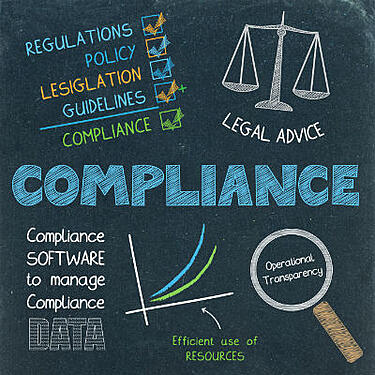Small as well as large businesses have to carefully attend to the labor laws and compliance statutes to ensure that the business activities run smoothly and without legal hurdles. Vendor management is especially important for businesses as well as vendors and contractors and ensures that the business relations remain symbiotic and profitable for all concerned.

Businesses face multiple tasks in compliance. The world has to be kept regulated, which ensures the safety of all and turns business organizations into more sustainable. Still, the different statutes, principles and regulations and the vastness of them may seem to be intimidating for the new businesses. Businesses have to face and overcome multiple issues relating to compliance, including those related to the compliance of vendor management procedures and labor laws. Compliance also extends to include establishments, shops, government, environments, business processes, and other business aspects. Globalization will further increase the complexity of legislations and litigations as governments turn to be more vigilant. In today’s competitive world, the presence of a legal compliance management system is necessary. Compliance ensures that the organizations grow with when they proactively manage their compliance protocols.
Vendor Compliance
Compliance ensures that the business processes, activities, and frameworks comply with the statutes or the laws of the land. Businesses have to manage their relationships with the stakeholders as well, following the statutes. Vendor compliance is even more necessary now, in times when outsourcing has increased manifold and the regulatory provisions cover all business aspects. Both employers and vendors have to manage their operations and relationship in compliance with the laws. The compliance tasks do not limit themselves to record-keeping and statutory deposits only, but also include the litigation and prosecution aspects and scenarios. Damages often result in prosecution and the top executives of a firm may be specially held responsible. These top executives may have to represent the company in the court of law (or before a competent authority) when the time comes. Some of the statutes and acts in India under which a company may have to manage the vendors and stay compliant are given below.
- Factories Act (1948)
- Employees Provident Fund Act (1952)
- Equal Remuneration Act
- The Employees State Insurance Act (ESI Act)
- Payment of Bonus Act
- Payment of Gratuity Act
- Trade Unions Act
The critical implication of the provisions should be kept in mind carefully. For instance, noncompliance may result in the loss of wages/pay for the vendors and contractors, and may also result in penal action and termination of the contract. For the principal employer, the legal implications can take the form of penalties, fines, and even closure of the business.
Different acts may also spell different penalties. For instance, the Payment of Wages Act entails a fine of a maximum of INR 10000 or an imprisonment term of 6 months for making false representations/statements. On the other hand, a person may be arrested without a warrant when he/she defaults under the Employees Provident Funds and Miscellaneous Provisions Act. Labour laws can be the basis on which the judgments are taken in the court of law. For instance, an employee is eligible for gratuity after he/she completes 5 years of service. A judgment gave the right of gratuity to the employee when he completed 4 years and 240 days of service.
Use of Latest Technology for Vendor Compliance Management
Businesses, especially the small ones may not have the required resources or expertise for a full-fledged compliance audit. Fortunately, third-party vendor compliance management and audit services ensure that the burden is solved in no time. Information gathering, classification, contract management and diligence ensure that the vendor compliance management processes always stay on the right track. Companies can also gain expertise working with the experts and start to follow the protocols in an expert way sooner than they anticipate. It is now easy and viable to hire expert compliance consultants as well, who take care of all issues related to vendor compliance management, and other related issues. Compliance ensures that the business can run without any adverse and costly litigations and fines, and its profitability is not marred by minor incidences of negligence. The use of world-class legal compliance software in India ensures that no errors and misjudgments are affecting the compliance process.
